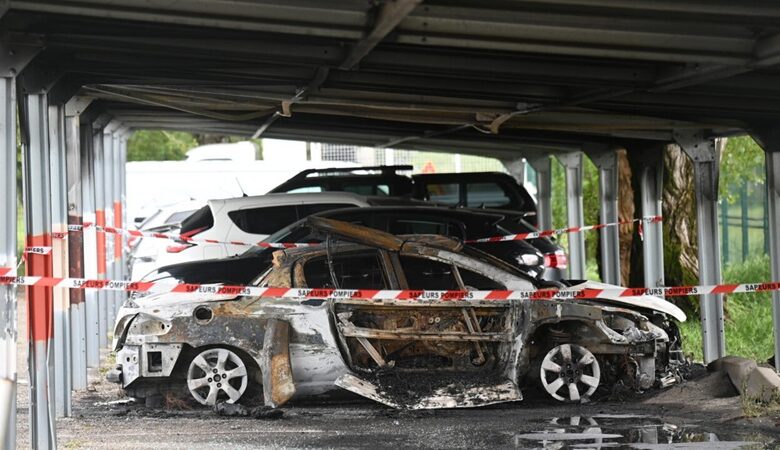French jail attacks no longer being investigated as terrorism
News Mania Desk /Piyal Chatterjee / 2nd May 2025

French anti-terrorism prosecutors will cease to manage the inquiry into 30 individuals believed to be linked to a series of prison assaults, stating on Friday that their purported activities fell “within the framework of major organised crime.”
During five distinct nights in April, a minimum of 10 prisons in France were targeted. Automatic firearms were discharged at correctional facilities, vehicles were set ablaze in prison parking lots, and personnel were threatened at their residences.
Although government officials stated that the assaults were probably triggered by efforts to combat gangsters operating their drug operations from prison, the French national anti-terrorism prosecutor’s office (PNAT) swiftly assumed control of the investigation. The PNAT reported that 30 individuals were detained for their suspected roles in the assaults. Seven individuals were already incarcerated, while four were underage. It stated that seven have since been released.
The PNAT reported that investigators had pinpointed the supposed founder of the “DDPF,” or “French prisoners’ rights,” group on Telegram, stating it was utilized to justify the attacks and criticize the treatment of incarcerated individuals. It stated that the individual was a convicted prisoner, pending trial in a drug cartel case, with claimed connections to Marseille’s influential and rapidly growing DZ Mafia organization.
The DDPF tag was smeared on numerous prisons that were targeted, and the PNAT claimed that the DDPF Telegram group was utilized to arrange the assaults, subcontracting the tasks to low-level criminals to execute them in a manner typically employed by French gangs.
The assaults on prisons have highlighted France’s escalating issues with organized crime. This week, legislators endorsed a comprehensive counter-narcotics statute to provide the state with stronger measures to combat a significant increase in drug-related offenses due to an unprecedented influx of South American cocaine into Europe.
The new legislation will establish a national prosecutor’s office dedicated to organised crime and segregate dangerous leaders in prisons, along with additional measures.






